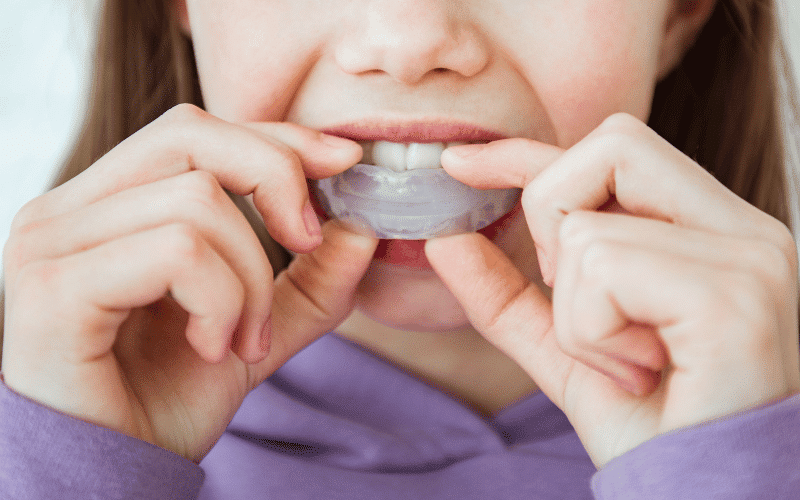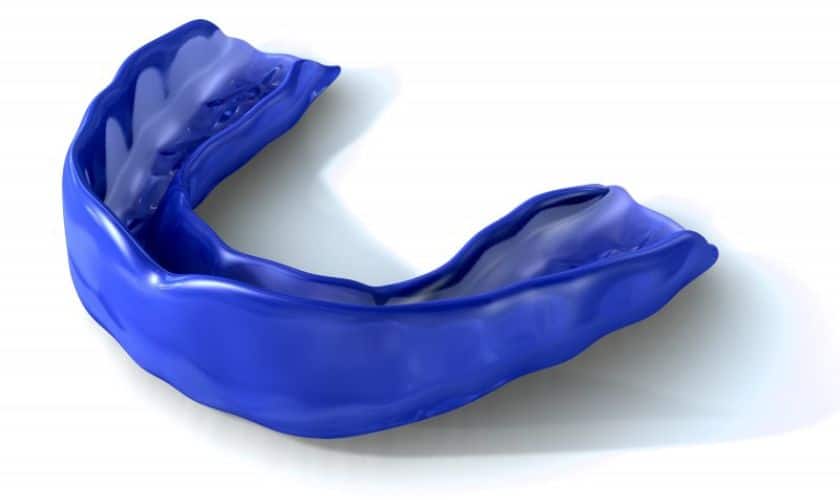Top Reasons Kids Should Wear Mouthguards in Sports

Safety is a top priority when kids play sports, and protecting their smiles is crucial. Sports mouthguards for kids offer a simple yet powerful way to prevent injuries. Studies show that athletes without mouthguards face a 60% higher risk of dental injuries.
Does your child play in the open ground? They may have an injury. Give them mouthguards when they go out. They are super effective.
This blog highlights why wearing mouthguards matters, keeping young athletes safe and confident on the field.
What is a Mouthguard?
A mouthguard is a protective device worn over the teeth to prevent injury during sports. There are three main types:
- Stock Mouthguards: Ready-made and inexpensive, but often uncomfortable.
- Boil-and-Bite Mouthguards: Molded at home by softening in hot water for a better fit.
- Custom-Fitted Mouthguards: Made by dental professionals for perfect comfort and protection.
Mouthguards absorb and spread out impacts, reducing damage to teeth, gums, and jaws during collisions or falls. This makes them vital for every young athlete.
Why Sports Mouthguards for Kids Are a Must
Wearing a mouthguard protects your child in multiple vital ways during sports. These simple devices serve as a first line of defense against various injuries. Here are the top reasons why kids should always wear a mouthguard when playing sports.
Protects Teeth from Injury
One of the most apparent benefits of a mouthguard is protection for your child’s teeth. Mouthguards absorb and distribute the shock from collisions, falls, or direct blows to the face.
According to dental health data, youth sports cause around 200,000 dental injuries every year in the United States alone.
These injuries include broken, chipped, or completely knocked-out teeth.
Wearing a mouthguard can reduce the risk of these painful and costly dental emergencies by up to 60%. The sports mouthguards for kids in Allen are of superior quality. You could trust them.
Prevents Jaw Injuries
The jaw takes a lot of force during contact sports. Mouthguards act like a cushion between the upper and lower jaws, absorbing impact energy and preventing bones from fracturing or dislocating.
Jaw injuries can be excruciating, often requiring long recovery times and sometimes surgery.
They can also cause difficulties with chewing, speaking, and even breathing if severe. By wearing a properly fitted mouthguard, kids protect their jaws from serious harm and avoid complications that could affect their daily lives.
Reduces Risk of Concussions
Many parents don’t realize that mouthguards also help reduce the risk of concussions. When a child receives a blow to the jaw or head, the mouthguard helps stabilize the jaw and lessen violent movements that can transmit force to the brain.
Several studies have shown that athletes who wear mouthguards experience fewer concussions compared to those who do not wear them. This added protection is critical in high-contact sports like football and hockey.
Enhances Confidence and Performance
When kids know they are protected, they feel more confident playing aggressively and without fear. Wearing a mouthguard can boost their mental focus and reduce anxiety about injury.
This confidence often translates into better performance on the field or court. Feeling secure allows young athletes to enjoy their sport and develop their skills without hesitation.
Which Sports Demand Mouthguards?
Sports like football, hockey, basketball, and rugby require mouthguards for safety. They also benefit players in soccer, baseball, and skateboarding, where mouthguards are recommended but not mandatory. Coaches and parents should encourage use regardless.
How To Take Care Of Your Mouthguards
Choosing the right mouthguard starts with comfort and fit. Custom-fitted ones from dentists offer the best protection and feel. Boil-and-bite mouthguards provide a good balance of fit and affordability. Avoid stock mouthguards that may not fit securely.
To maintain hygiene, rinse the mouthguard before and after use with cool water. Occasionally, clean it using mild soap and a toothbrush. Avoid hot water, which can distort its shape. Always store the mouthguard in a ventilated container to prevent bacterial growth.
Replace mouthguards once they show signs of wear, such as holes, tears, or loss of shape. Additionally, children’s growing mouths require new mouthguards at least once a year to ensure a proper fit and maximum protection.
Sports mouthguards for kids play a vital role in preventing dental and jaw injuries. They also help reduce the risk of concussions and protect soft tissues. Parents and coaches must prioritize mouthguard use for safer sports. Don’t wait — get your child a mouthguard today to keep their smile safe while they enjoy the game.


